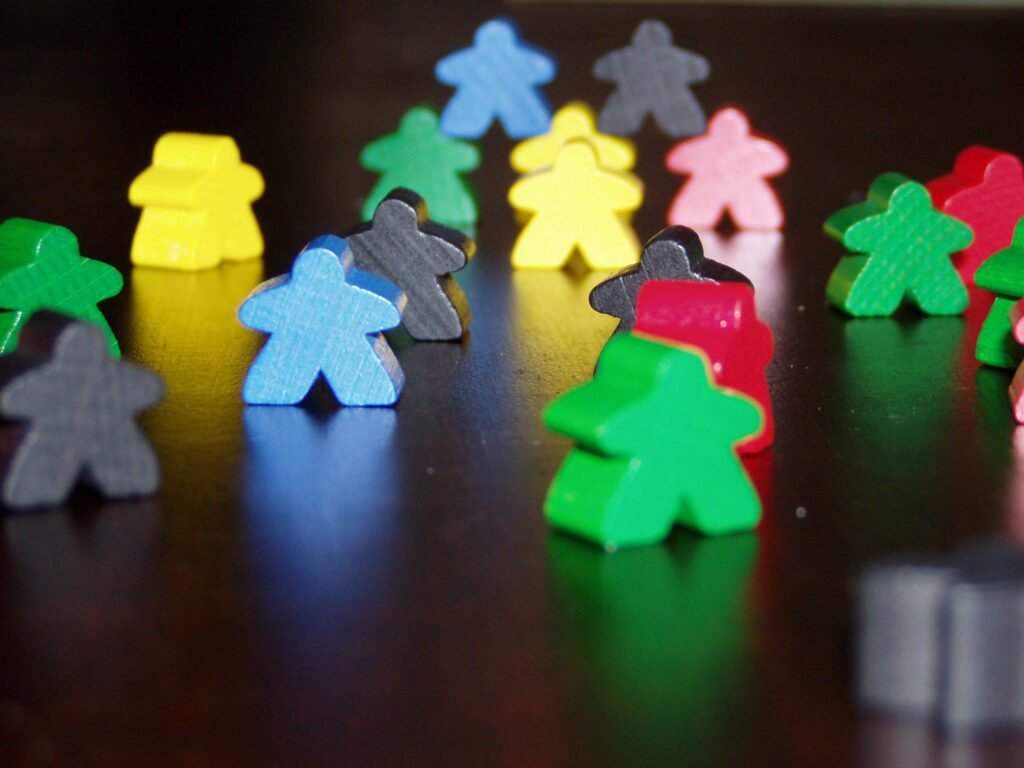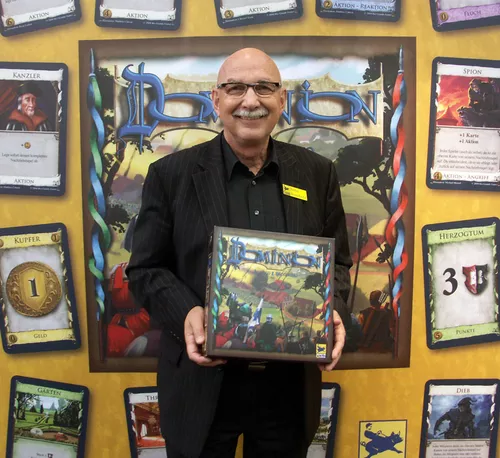
OLYMPUS DIGITAL CAMERA
The tabletop gaming community has been thrown into turmoil by Carcassonne’s publisher over a surprising trademark dispute involving one of the hobby’s most iconic and ubiquitous terms – “meeple”. These stylized human-shaped playing pieces have become a beloved symbol of modern board games, but their origins and ownership are now being fiercely contested.
The controversy began when German publisher Hans Im Glueck, sent a cease and desist letter to the creators of the crowdfunded game Meeple Inc. The letter demanded they immediately remove their $230,000 Kickstarter project, citing Hans Im Glueck’s trademark ownership of the word “meeple” across Europe.
This came as a shock to designers Joe and Maddie Adams, who had successfully raised funds from over 1,600 backers for their worker placement game about being board game publishers. Expressing surprise that such a commonly used term was trademarked, they begrudgingly agreed to rebrand as Tabletop Inc to avoid legal issues.
The Origins of the Iconic Meeple
The iconic meeple design originated in 2000 with the release of the wildly popular Carcassonne by Hans Im Glueck co-founder Bernd Brunnhofer. However, the name “meeple” wasn’t coined until later by American gamer Alison Hansel, who used it as a portmanteau of “my people” to describe the playing pieces.

Despite the meeple’s widespread adoption across the gaming world, Hans Im Glueck didn’t pursue trademarking the term until 2009 – nearly a decade after Carcassonne’s release. They finally succeeded in registering “meeple” as an EU trademark in 2019, overcoming objections from major publisher CMON by leaning on the argument that their original design had become identified as the quintessential meeple shape.
The EU allowed the trademark for products like software and books, but crucially excluded toys and games. Hans Im Glueck has since registered meeple for toys/games in Germany and also owns the EU trademark for the specific original Carcassonne meeple figure design.
Defending a Valuable Creation
In an interview with BoardGameWire, Hans Im Glueck CEO Moritz Brunnhofer (son of meeple creator Bernd) acknowledged the cease and desist letter was “phrased too aggressively”, but defended the need to protect their valuable trademark through “defence and respect for creation”.
Brunnhofer cited concerns that failing to enforce the trademark could theoretically lead to losing it entirely, as well as a desire to prevent a “copy-system” where creativity is devalued. He claimed Meeple Inc differed from other meeple-named games by directly commercializing the name/shape for a substantial $230,000 crowdfunding amount.”
“Many of the other commercialized [attempts] reached out to us…on a basis of respect,” Brunnhofer stated, expressing surprise at the level of backlash as they “did not know” the action could provoke such “apprehension” from the passionate gaming community.
The US Trademark Gambit
In a daring response, prominent industry figures Corey Thompson and Marian McBrine quickly filed a US trademark application for the word “meeple” across all tabletop games. Their stated goal is to prevent “predatory action” and ensure the term remains freely usable by all.
Thompson, co-owner of board game media channel Above Board TV, stated they have no profit motive and intend the trademark to be “usable by anyone” with just “credit and candy” as payment. The application leans on an existing Etsy store previously created by McBrine “to embarrass” Thompson.
However, the application is expected to face objections. Ryan Dancey, COO of major publisher Alderac Entertainment Group (AEG), predicted a “chilling effect” on meeple usage due to Hans Im Glueck’s litigious stance. He felt the term had become too generic by 2017 for the original trademark to be defensible.
Alderac itself owns the US trademark for Meeples & Monsters, but Dancey said going forward they would likely avoid using the meeple name and shape due to the legal risks revealed by this case. “I wish they had not pursued registration on this mark or taken action to enforce their ownership,” he stated.
A Divisive Controversy
The meeple controversy has deeply divided the passionate board gaming community. While Hans Im Glueck claims a legitimate need to protect their valuable creation, many fans feel the iconic term has outgrown its origins and should remain free for all to use without restriction.
As the US trademark application wends its way through the process, the future usage and ownership of one of gaming’s most beloved terms hangs in the balance. The ripple effects have the potential to significantly impact game designs, marketing, and the community’s relationship with the very idea of a “meeple” for years to come, all from what appears to be greed by the publisher of Carcassonne.
At no extra cost to you, The Board Game Site may receive revenue from affiliate and advertising partnerships for sharing this content and from purchases through links.






